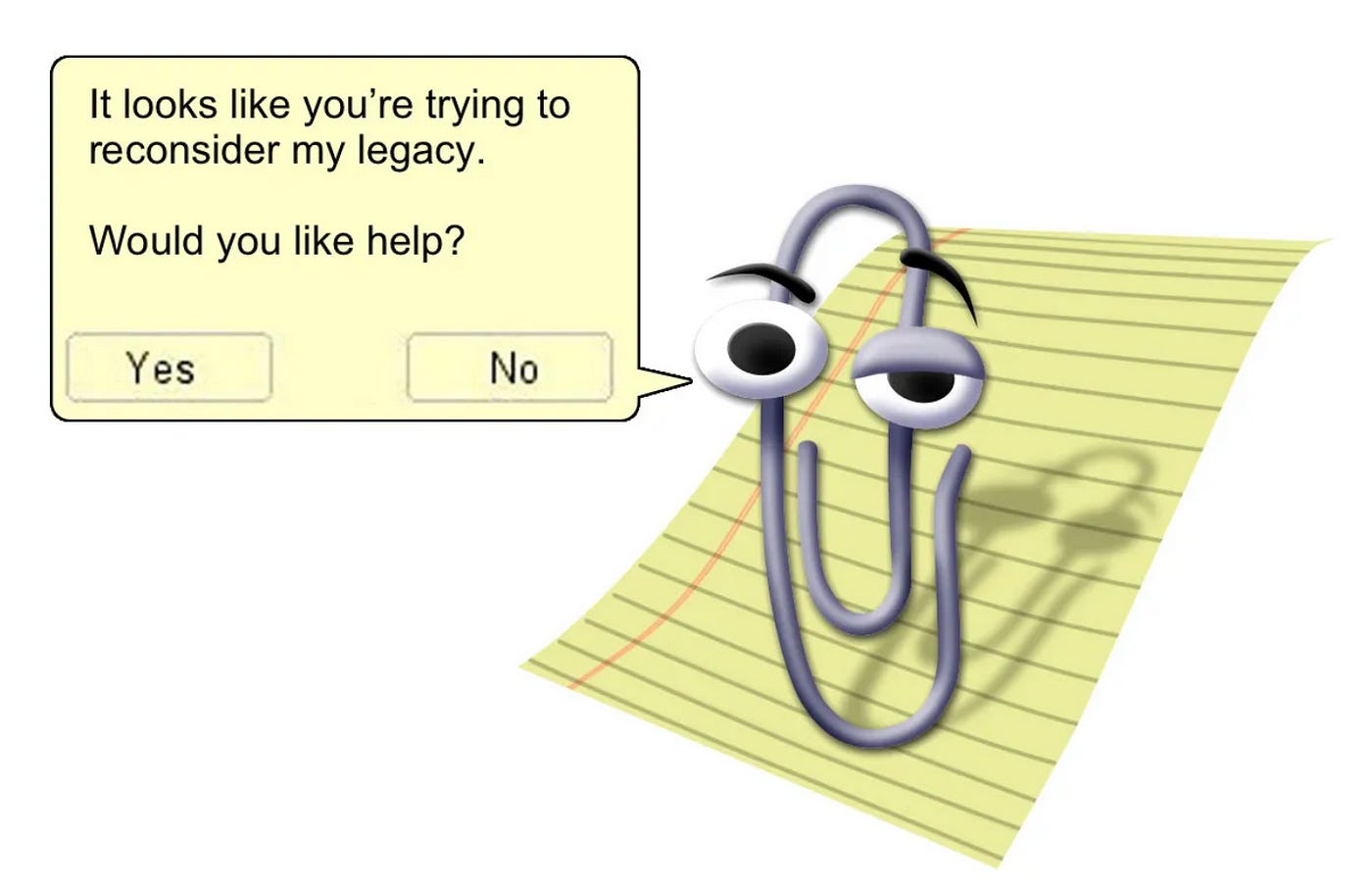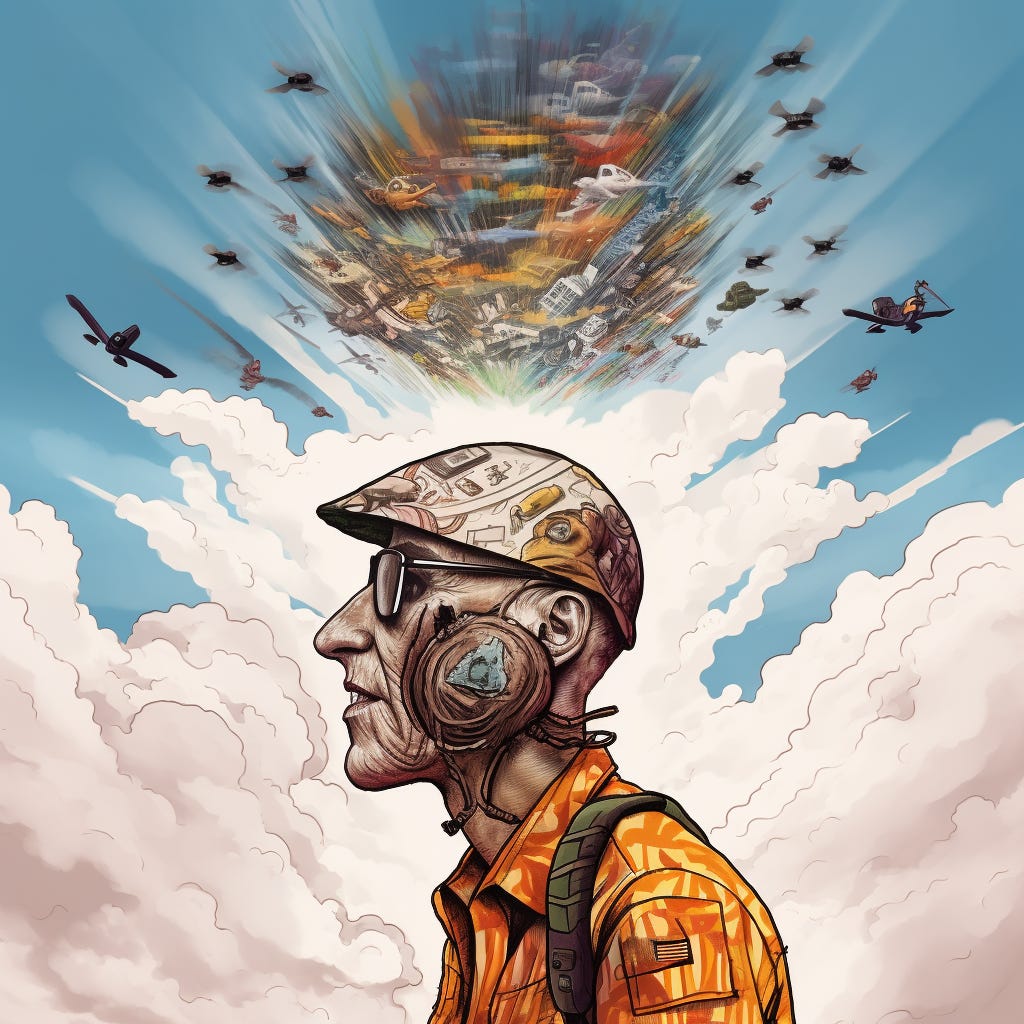Co-Pilot for Microsoft 365: This is AI’s iPhone Moment.
Welcome to the era of Co-Pilot for Microsoft 365. Embrace the thrilling promise of unparalleled productivity while confronting the unnerving question — are we losing ourselves in the Cloud?”
Excitement and Fear
The unsettling sensation in my stomach is undeniable. Leaving me unsure of how to feel.
As a technology lover, I’m thrilled and eager to partner with my new Co-Pilot.
Yet, my darker side experiences a profound sense of unease. All our data is augmented … Linked within context by the omniscient Microsoft Graph.
Summoned by the instruction of a prompt, materializing into beautiful documents, spreadsheets, and E-mails.
Our Creativity Unleashed
The Co-Pilot Product Announcement Kicks off like a pro:
Humans are hard-wired to dream, create, and innovate. Each of us seeks to do work that gives us Purpose — to write a great novel, make a discovery, build strong communities, and care for the sick. The urge to connect to the core of our work lives in all of us. But today, we spend too much time consumed by the drudgery of work on tasks that zap our time, creativity, and energy.
You have to give it to them. Exquisite marketing and triggering copywriting are some of Microsofts’ core strengths. They don’t even need a fancy large language model for it.
Of course, we all want to dream, create and innovate with Purpose! And true, very few people feel the best versions of themselves while doing tedious, repetitive office work.
Imagine how our office productivity will be boosted if that slide deck magically creates itself.
And even that business case spreadsheet automatically assembles, without needing our help. Extracting unbiased facts from the internet, translated into beautiful pie charts.
Or even better, your post-holiday mail backlog gets squeezed down to zero in seconds.
All this while sipping coffee with our colleagues, engaged in an energizing conversation about the latest news facts spewed out by our personalized AI assistant. The one that knows us better than we know ourselves.
A Sea of Uniformity
Did you notice those common answer suggestions, that recently made their way to Microsoft Outlook? “That’s Excellent,” “Great Job!” “Appreciated.”
The supposedly optimal responses to a mail are based on its content. Answers are sought out for us by algorithms trained on an ocean of human data.
Microsoft Co-Pilot takes this experience to the next level. Seamlessly extracting helpful facts from the data graph resulting in a frictionless, perfectly crafted summary that makes us look like rockstars without a guitar.
Where is the elation of spotting sweet irony hidden between the lines of numerous professional e-mails?
What about the joy of “that girl” hitting the send button amid a rage. Filling your screen with capitalized sans-serif. The redness of the chosen typeface hurts your eyes.
And those office romances, ignited by an inexplicable allure to the awkward use of punctuation of that person two floors down.
What are the odds of this new dude consciously deciding to augment his perfect auto-generated “introducing myself” deck with a picture of him hugging trees in his underpants?
These “smart” systems…Literally sucking the life out of our minds.
Initially, they mimicked us, but eventually, we started imitating them. Before we realize what happens, we are slowly being reduced to algorithmic zombies.
The Good Part
Don’t get me wrong. I will use Co-Pilot. In my case, it will help save time looking for information scattered around my digital desk.
Also, automatically generating summaries, reworking information, and generating slide deck outlines will be a real lifesaver.
Yet, we shouldn’t take things too far. These solutions should serve as tools to assist us in our work rather than merely replacing it.
We humans are more than just algorithms, and we must resist the temptation to reduce ourselves to mere automatons.
The True Purpose
Let’s call out things as they are. With the emergence of fantastic innovations in the field of Generative AI and the quick incorporation of this technology in many productivity and creative apps, Microsoft just needed to catch up.
We’re in the era of the “browser wars” all over again.
Most desktop computers run Microsoft Windows and are firmly tapped into the Office ecosystem.
Through their intense partnership with OpenAI, Microsoft saw the chance to compensate for their less-than-optimal results of the past quarter and secure their competitive advantage over their main competitors.
So, Microsofts true Purpose — in this specific case — obviously remains securing its market position and boosting profits.
The Transition
Whenever technology goes through fast and more than marginal cycles of improvement, we try to incorporate it into our socio-technical systems, without wondering if both are actually still aligned.
In other words, we try to solve today’s problems with technology that can only truly shine if we take the time to radically reconsider our current ways of doing things.
This frantic race to integrate generative AI into applications designed for the old world is a transitional phase. We will soon shift our focus towards creating entirely new solutions that better address the challenges our world will face a decade from now.
Before we do so, we can use Co-Pilot to be more productive. This will give us the much-needed time to reflect.
Contemplate how we want to evolve as a human society. We mustn’t diminish ourselves to mere algorithms and strip life of the essential friction required.
As we conclude, let us remember that newer isn’t always better. Instead, let’s look back at something quite ancient. This perspective illustrates that while technology has provided incredible benefits, it may only sometimes aid us in deep thinking.
In the spirit of Kierkegaard’s words, we must hold ourselves accountable to ensure that technology doesn’t deter us from engaging in meaningful and sometimes painful reflection.
When everyone unites to make everything more accessible in every possible way, only one danger remains — that convenience becomes so great that it becomes too easy; then there is only one thing missing — whether we feel it already or not — the absence of difficulty. Out of love for humanity, out of despair over my own humble position, having achieved nothing and with nothing that I could make easier than it already is, out of sincere interest in those who make everything easy, I understood that this was my mission: to create difficulties, everywhere.
— Søren Kierkegaard / Johannes Climacus (1846)
What are your thoughts on that matter, @Clippy?




